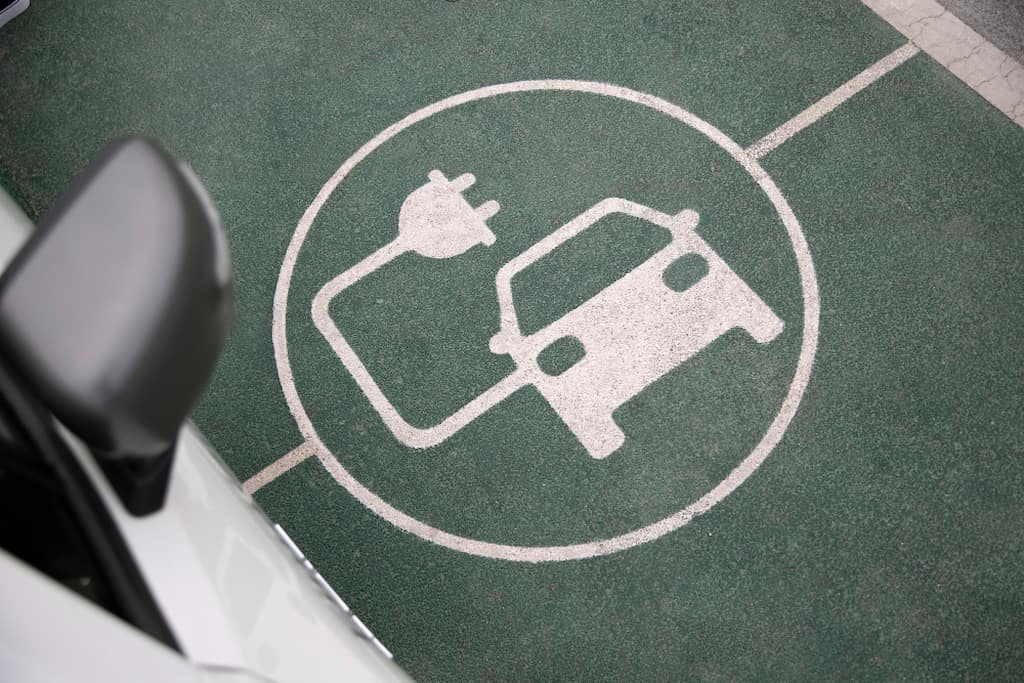
When someone begins to take an interest in sustainable mobility, a recurring question arises: what is the difference between an electric car and a hybrid? Although both share the idea of reducing emissions and improving efficiency, the way they work and the advantages they offer are very different. In this article from Activacar, as a company specialized in charging point installation and experts in electric vehicles, we will explain it in a clear way, with practical examples, to help you decide which option best fits your daily life.
What do we mean by a hybrid car?
A hybrid car is, in simple terms, a vehicle that combines two engines: a combustion engine and an electric motor. It does not need to be plugged in, as the battery recharges itself using the energy from braking or from the engine itself.
Key Points of Hybrids
- They run on both gasoline or diesel and electricity at the same time.
- The battery only provides a few kilometers in electric mode.
- The transmission is automatic, and driving feels very similar to a conventional car.
- They are more efficient than traditional cars, especially in the city.
For many drivers, a hybrid represents a first step toward electrification without yet giving up fossil fuels.
And what are electric cars?
An electric car, unlike a hybrid, relies solely on an electric motor and the battery that powers it. There are no exhaust gases or fuel to refill.
Advantages of Electric Cars
- Zero emissions while driving: they do not pollute in use.
- Extended range: nowadays they easily exceed 300 km without problems.
- Home or public charging: you can connect it to a charging point, even in your garage.
- Fewer breakdowns: it has fewer mechanical parts that can wear out.
An electric car can become the best option if you have a charging system at home. In this sense, the solution of installing a home EV charger is key to enjoying it without complications.
Difference Between Electric and Hybrid Cars
The difference between an electric car and a hybrid is easier to understand when we compare how they work and what they offer in daily life.
Comparison Between Electric and Hybrid Cars
- Energy: the electric car relies only on the battery, while the hybrid combines battery and fuel.
- Cost per kilometer: charging an electric car at home is much cheaper than filling up a tank. The hybrid saves some money, but not as much.
- Maintenance: the electric car wins, as it has fewer moving parts.
- Long trips: with a hybrid you don’t have to worry as much about range. With an electric car, you need to plan charging stops.
In short, if you are looking for sustainability and long-term savings, the electric car is the ideal option. If you are still concerned about charging infrastructure or frequently take very long trips, the hybrid may be more convenient.
Difference Between Electric and Plug-in Hybrid Cars
There is a middle ground: the plug-in hybrid (PHEV). In this case, the battery can be connected to the grid, allowing the car to drive many more kilometers in electric mode.
What You Should Know About PHEVs
- They offer between 40 and 100 km of range on electricity alone.
- They are very useful in the city, as you can use only the electric motor for daily trips.
- When the battery runs out, the combustion engine kicks in.
We could say they are the option for those who want to drive electric during the week and still have the security of a gasoline engine for getaways or long trips.
Economic and Tax Advantages
Buying an electric car is usually more incentivized than buying a hybrid.
Benefits of an Electric Car
- Lower taxes (registration and road tax in many cases).
- Grants and subsidies from national or regional governments.
- Energy that is cheaper than fossil fuels.
Benefits of a Hybrid
- Access to the ECO label, which allows driving in restricted areas.
- Lower fuel consumption in the city compared to a traditional car.
Which One to Choose?
The decision depends on your lifestyle:
- Electric: perfect for urban or medium-distance trips, as long as you have access to a charging point. Check out our charging point installation solutions.
- Hybrid: recommended if you drive many kilometers and don’t want to rely on the charging network.
- Plug-in Hybrid: ideal if you want to drive on electricity in the city without giving up the flexibility of the combustion engine.
If you live in a building with a garage, installing a charging point in a community garage is the most practical solution to make the switch.
Frequently Asked Questions (FAQs)
What is the difference between an electric car and a hybrid?
The electric car uses only a battery and an electric motor. The hybrid combines an electric motor with a combustion engine. One is 100% clean, the other more flexible.
What is the difference between an electric car and a plug-in hybrid?
The plug-in hybrid can be charged from the power grid, which gives it more kilometers in electric mode, unlike the conventional hybrid.
Which car is cheaper to maintain?
The electric car, because it has fewer mechanical parts and electricity is cheaper than fuel.
What if I don’t have a charging point at home?
You can always install one with the help of experts like Activacar, either in single-family homes or in community garages.
Conclusion
Knowing the difference between an electric car and a hybrid helps you make a more informed decision. Hybrids provide security on long journeys; electric cars offer sustainability and long-term savings. Plug-in hybrids act as a bridge between both worlds.
At Activacar, we work every day to make the transition to electric mobility simple. From charging point installation to personalized advice, we are by your side so you can drive toward a cleaner future.





